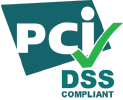Secure, 24/7 online proctored (OLP) exam delivery. It is simple to say. In fact, the process is challenging. Yet the sheer elegance of Kryterion’s solutions is bound to fascinate.
That’s why we are highlighting Kryterion’s Test Delivery Services (TDS) contributions to clients’ OLP exam security with a new blog series: Inside OLP with Kryterion. (OLP is often referred to as “online invigilation” by our friends abroad or “live, remote proctoring.”)
This, our first installment, offers a big-picture synopsis. Upcoming posts will provide more focused descriptions. Look for them!
Kryterion’s OLP: Innovation in Action
“We have implemented a customizable, one-on-one exam pre-check process” says Gina McFadden, Director of Customer Support. “Our program proves that rigorous and rapid, one-on-one, high-stakes exam security checks can also be cost-efficient.” This is in addition to our standard biometric and secure browser test security measures.
To better support its international OLP client base, Kryterion recently added in-house OLP teams based in the Philippines and S. Africa to its existing US base. “This 24/7 ‘follow the sun’ approach” adds McFadden, “will keep OLP staff support tightly aligned with the test candidate experience and client needs.”
Having multiple team locations provides a second significant benefit. In the event of local environmental disruptions, widely distributed support centers help ensure seamless coverage.
Kryterion has always embraced innovation. Remember, in 2007, it was Kryterion that introduced live, online proctored exam delivery supported by a proprietary secure browser technology.
Three Teams: Same Goal

Kryterion has evolved a tiered, three-team approach to OLP test candidate support.
“A graduated approach to candidate support,” notes McFadden, “has proven to be highly efficient.”
Proctors supervise the majority of “standard” candidate sessions. Customer Support Advocates manage situations with the potential to endanger test security. Elite Kryterion Solutions Team agents resolve especially fraught circumstances.
When launched, candidate test sessions are immediately queued and swiftly assigned to the next available proctor.
Proctors:
- Maintain a transcript of each candidate’s exam journey, start to finish
- Observe and assess candidate compliance with sponsor-defined security standards
- Advise candidates of expected session behavior, as needed, using standard system alerts
- Escalate aberrant sessions to the CSA team
Kryterion invests heavily in proctor training. To the candidates they will interact with, proctors are Kryterion!
New proctor recruits must complete 80 hours of supervised training. It starts with a 40-hour training curriculum, followed by 40 hours of closely supervised practice. Graduation to a full-fledged proctor assignment requires successful completion of a final assessment.
Most candidates complete their test sessions with minimal proctor interaction. Invariably, some sessions will deviate from expected standards. Those sessions are promptly “escalated” to the next available Customer Support Advocate (CSA).
OLP CSAs constitute Kryterion’s “go-team.” Their job is to
- Provide support when technical issues degrade test session quality from the perspective of the proctor or the candidate
- Manage situations that a proctor believes may constitute a risk to test content security
- And update the candidate’s session transcript with interaction details
CSAs typically resolve the cases that they’re assigned. But when the situation is time-sensitive, and live phone support is necessary, it goes to a member of the Kryterion Solutions Team (KST).
KST members are specially trained to handle phone calls. They’re also the most senior support team members for OLP test candidates.
These teams collaborate to provide efficient service. They also constitute an in-house career path that rewards competence and enables professional career growth. Kryterion’s ability to grow and retain top talent is a vital factor in the overall success of our approach.
But There’s So Much More to It
For starters, all OLP testing sessions are audio and video recorded, and retained for review by the test sponsor. If Kryterion terminates a test session prematurely – typically due to test security concerns – we notify the test sponsor. The sponsor then can review the live session recording – and the embedded, time-stamped session transcript – to assess appropriate next steps and the correctness of Kryterion’s guidance and decisions.
Kryterion is GDPR and California Consumer Privacy (CCP) Act compliant. OLP session recordings are managed in strict accordance with individual client data retention policies. For more details, see our published privacy policy.
Naturally, Kryterion’s OLP teams appreciate the LinkedIn testimonials and Facebook likes that indicate candidate satisfaction. However, service excellence isn’t measured in comments. That requires standards, monitoring and measurement. It requires Kryterion’s Quality Assurance (QA) team.

Every month, Kryterion’s QA team grades the performance of every active Proctor, CSA and KST associate. Multiple sessions are randomly selected for evaluation. Kryterion/candidate interactions are assessed against a broad range of role-appropriate criteria. Speed of response. Completeness of responses. Accuracy and clarity are just some of the factors reviewed.
Team members rated at under 90% of effectiveness are referred for additional coaching.
More Kryterion OLP Insights on the Way
As noted above, this post is merely a synopsis of the multiple program elements that enable us to deliver outstanding performance and unsurpassed OLP test security.
Look for more details and fresh insights in upcoming series’ posts. You won’t wait long!
By the way, we welcome inquiries about our programs and services. To schedule a conversation with a Kryterion Business Professional, complete and submit this short contact form.
Our experts specialize in the delivery of clear and helpful insights. You might enjoy it.








